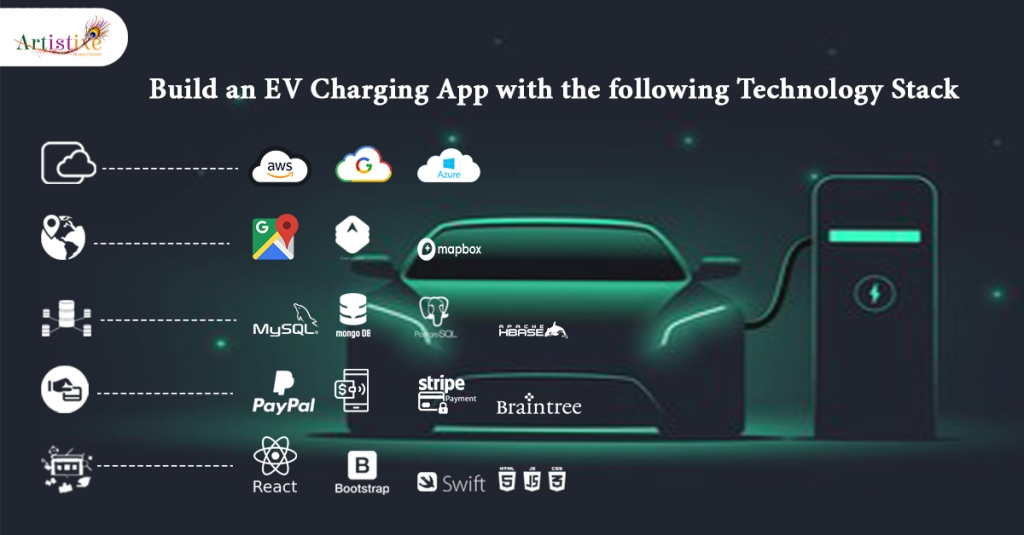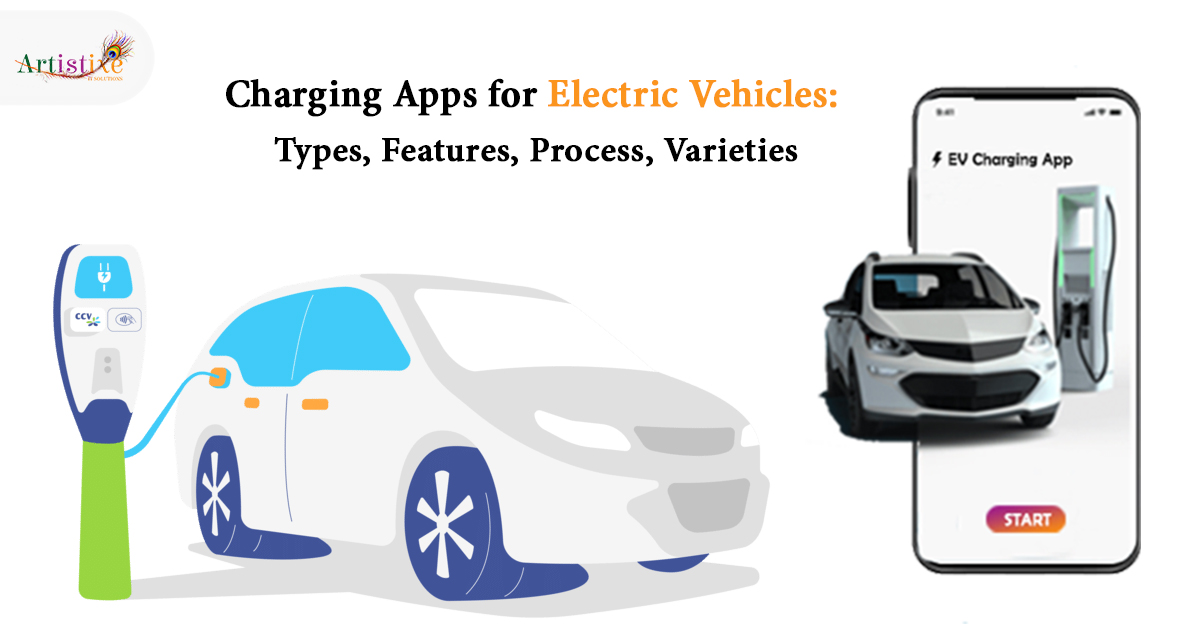The electric vehicles charging applications let users search charging stations, compare car chargers, leave reviews, and connect with other owners. It corresponds to a global map of public EV charging stations, with every major network represented.
EV charging apps like Plugshare are the world's largest EV community where users review charging stations and upload photographs to help the community make more informed decisions.
An electric vehicle powered by fuel cells, the Honda Clarity Fuel Cell. In it, there is a tank of pressurized hydrogen that combines with oxygen in the air to produce water (H2O) and electrons.
What Kinds of Electric Vehicles Are There - The Three Levels of Electrification
Electric vehicles are powered by electric motors instead of gasoline engines. By using an Electric Vehicle Supply Equipment (EVSE), it is charged from AC to DC. Electric cars fall into three categories:
- Battery Electric Vehicle (BEV)
- Plug-in Hybrid Electric Vehicle (PHEV)
- Fuel Cell Electric Vehicle (FCEV)
Build an EV Charging App with the following technology stack

The most important technical components of an EV charging app are:
- Cloud environment: AWS, Google, Azure
- Database: MongoDB, Hbase, Cassandra, MySQL, Postgress, Mail Chimp Integration, and Redis
- Communication Protocol: OCPP
- Analytics in real-time: Hadoop, Spark, Apache Flink, Cisco.
- Framework: Laravel
- Server: NGINX
- Location of users: Google Places API, Core Location Framework, Google Maps
- Payments: Paypal, EWallets, Stripe, Braintree
- Push Notifications: Amazon SNS, Urban Airship, Firebase Cloud Messaging, Twilio.
- MS, Voice and Phone verification: Twilio, Nexmo
- Front-end: Kotlin, Swift, Objective C for mobile applications. HTML, CSS, ReactJS, and Bootstrap for web applications.
- Back-end: Python, Node JS, and JS for microservices
What Are the Applications of EV Charging?
- Connectivity is configured to allow EV charging solutions to work in diverse environments.
- In residential charging - Integrated with residential safety features for housing societies.
- Public charging stations are commonly found in places such as workplaces, businesses, and malls.
- DC chargers are used in fleet charging applications to support all types of vehicles and charging needs.
- In addition to the ability to update firmware and software remotely, these charges provide 30KW-300KW of EV power.
Which Features Does The EV Charging App Offer?
- EV Charging Apps allow users to locate nearby or on-the-road charging stations where they can charge using their 'partner charge cards' or alternative payment methods.
- By selecting your vehicle type, you can find out which charging stations are compatible and view estimated charging costs.
- Charge point types, charging capacity, and connector types can all be filtered
- Charge point owners can set charging tariffs that are up-to-date on this page
- Through the app, you can start and stop charging sessions at supported charging stations
- You will be notified when your favourite charge point becomes available. Be notified when your battery is fully charged or if your charging session was unexpectedly interrupted.
- Charge history for public and private charging points, including costs, location information, and volume charged.
- Real-time location detection and information about available charging stations.
- The app schedules charging dates and times, set reminders, tracks usage, and sends notifications.
- Real-time notification of the charging status.
- User feedback regarding the charging junction.
- Payments within the app
- Finding all station stops en route
- A station's rating and photo are displayed along with its description and availability.
- Level 1, 2, and 3 AC charging sockets, as well as DC fast chargers, such as Tesla Superchargers, CHAdeMO and SAE.
- From the built-in display of a CarPlay compatible device, users can browse nearby charging locations, bookmarked locations, and trips they plan with the EV charging app.
- Adding charging stations as they are discovered in the app.
- For users, the app links them to their most popular navigation app so they can quickly find the stations they want.
- There are easy-to-use smart filters that allow them to see only the stations they are interested in.
- By checking ahead, they can ensure the stations they wish to visit are open.
- The app allows users to make payments in-app
- Users can turn off notifications.
What is the EV Charging App Process?
- Find the closest charge points to your destination, navigate to them, and charge.
- Which charge point should I choose? You can see the distance and cost in the list.
- Have you started charging? You can view your session in the app and end it at any time.
- Are you going back to the same charge points? Make them your favourites so you can find them faster.
- Is the charge complete? You can view the previous charging sessions.
- Find out where you can charge fast and cheap by viewing charge point details.
- Is Smart Electric Vehicle Charging different from Traditional Electric Vehicle Charging Apps?
- A traditional EV Charging App allows people to charge publically with their business card or a charge card from a partner.
How Much Does An EV Charge Cost?
In that timeframe, an electric vehicle will require 180 kWh. In the United States, charging an electric vehicle costs approximately $25.20 per month.
How Much Does it Cost To Create An EV Charging Stations App in 2021?
It comes around: US $10,000 – $40,000.
Conclusive: How Do I Create an App for Charging Electric Vehicles?
Recognized as one of the best development companies offering services of charging App Development for EV Applications available for electric vehicles offer a convenient method of gaining information that helps you drive more conveniently in your fully electric plug-in car. Call one of our experts right now for more information.








0 Comments